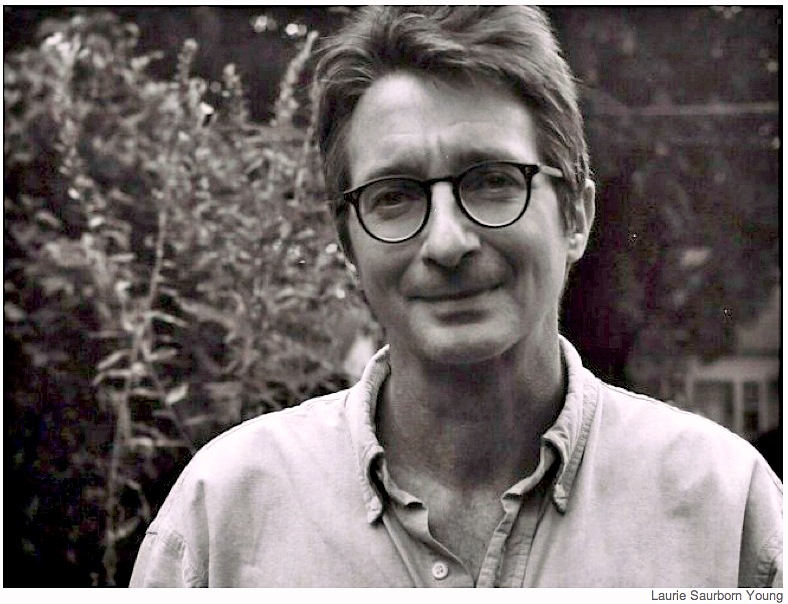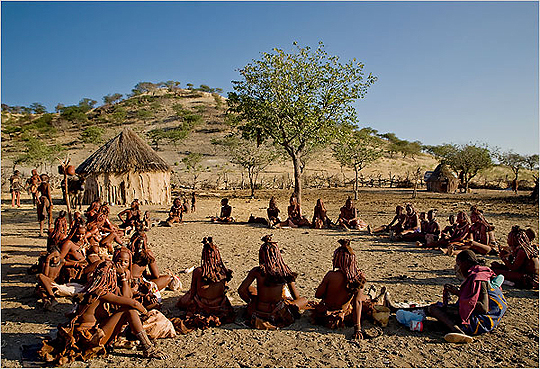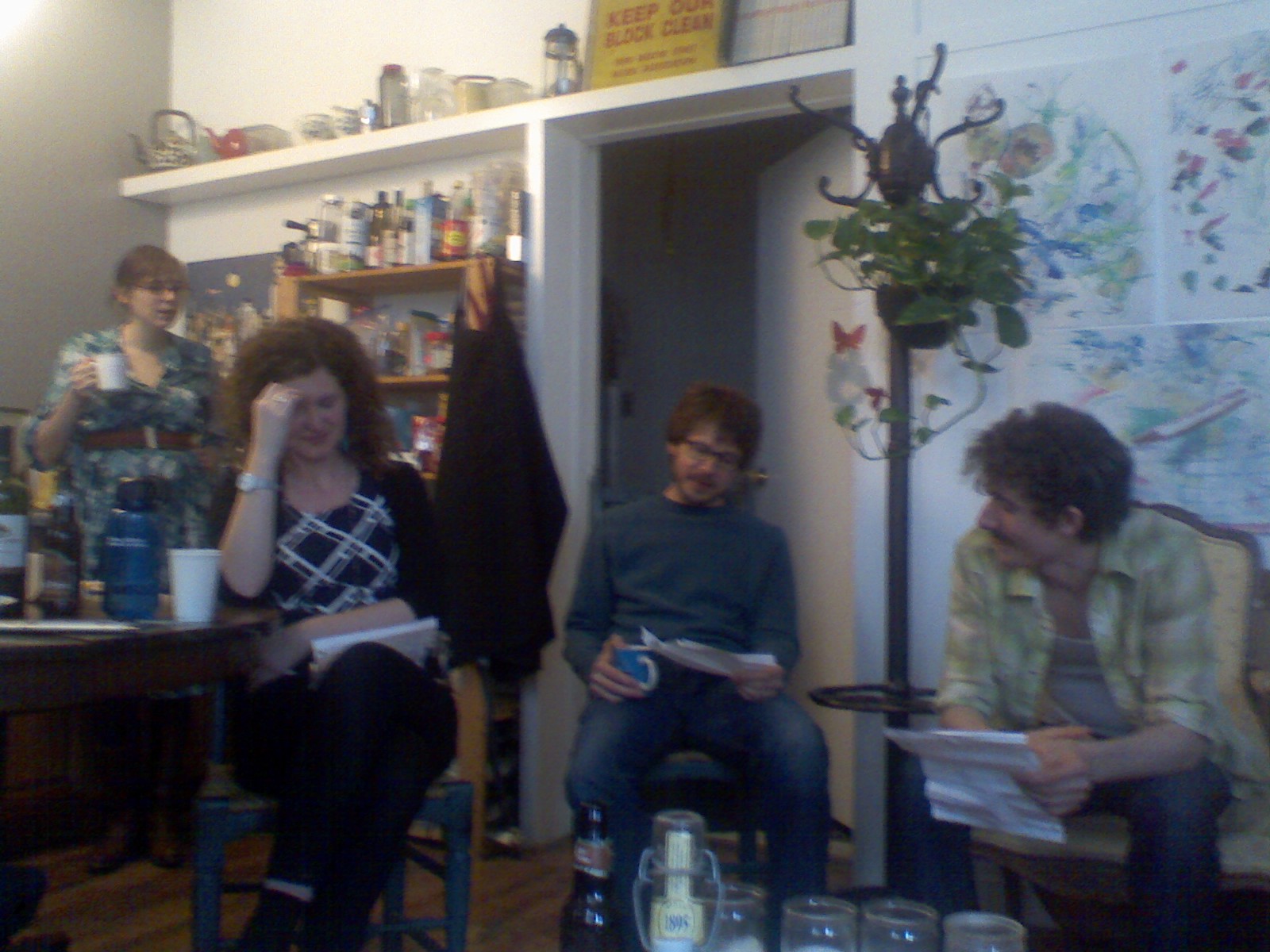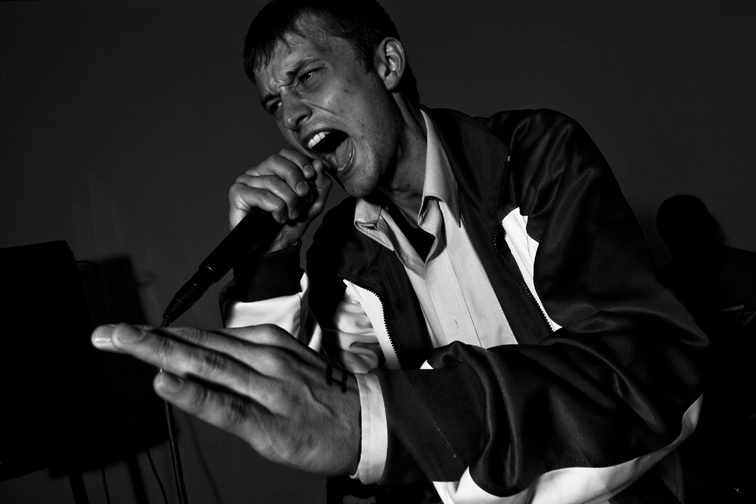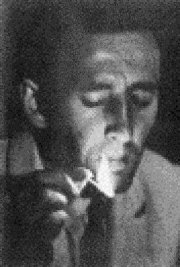POETRY MONTH 30/30/30: Inspiration, Community, Tradition: DAY 18:: Ben Wiessner on Dean Young
 Before Fall Higher’s table of contents Dean Young booms out a call to action:
hark, dumbass,
the error is not to fall
but to fall from no height
As soon as I came across those lines I snapped a grainy picture on my prehistoric flip-phone and sent them to the person who knows most clearly my errors, how much of that dumbass I can be.
This book belonged in my apartment. It was meant to be poured over on a couch, read with dinner. His words and I line-danced toward and from each other, catching promising glimpses between partner switches:
When you finally admit you’re broken,
Can I come back up now? asks the chair
with its leg snapped in the basement
and Don’t even get me started, says the sky.
- (“Irrevocable Ode”)
Before Fall Higher’s table of contents Dean Young booms out a call to action:
hark, dumbass,
the error is not to fall
but to fall from no height
As soon as I came across those lines I snapped a grainy picture on my prehistoric flip-phone and sent them to the person who knows most clearly my errors, how much of that dumbass I can be.
This book belonged in my apartment. It was meant to be poured over on a couch, read with dinner. His words and I line-danced toward and from each other, catching promising glimpses between partner switches:
When you finally admit you’re broken,
Can I come back up now? asks the chair
with its leg snapped in the basement
and Don’t even get me started, says the sky.
- (“Irrevocable Ode”)
POETRY MONTH 30/30/30: Inspiration, Community, Tradition: DAY 14 :: Daniel Owen on Bill Kushner
 I first encountered Bill Kushner’s work at a reading at the Poetry Project a few years ago. That night, he read from In Sunsetland With You, a book of poems that emanate from young Billy’s relationship with old Abe Lincoln, poems that, with a language of grace and humor, narrate the misadventures of a lonely, horny, eternally innocent, old, sad, and joyous spirit through the wars, highway-watching nights, and skinny-dippings of Sunsetland. What struck me most about these poems, and what continues to strike me through all of Bill's work, is the delicate balance between wrenching and buoying the heart. Bill’s poems are like walking through the world with one’s eyes open, with the workaday bullshit stripped away; he reads the raw Whitman writ on every street corner or fragment of memory, real or imagined.
Over the course of eight books, Bill has rambled through the streets of Sunsetland and New York, across sonnets and daily diary poems, lustily crusing through time present and past, Billie Holiday records, beefcake babies, always in a mood of love, love, love. Yes, love appears on almost every page and it sure feels real, flapping in the face and the mind and the blood of a humble human life.
I first encountered Bill Kushner’s work at a reading at the Poetry Project a few years ago. That night, he read from In Sunsetland With You, a book of poems that emanate from young Billy’s relationship with old Abe Lincoln, poems that, with a language of grace and humor, narrate the misadventures of a lonely, horny, eternally innocent, old, sad, and joyous spirit through the wars, highway-watching nights, and skinny-dippings of Sunsetland. What struck me most about these poems, and what continues to strike me through all of Bill's work, is the delicate balance between wrenching and buoying the heart. Bill’s poems are like walking through the world with one’s eyes open, with the workaday bullshit stripped away; he reads the raw Whitman writ on every street corner or fragment of memory, real or imagined.
Over the course of eight books, Bill has rambled through the streets of Sunsetland and New York, across sonnets and daily diary poems, lustily crusing through time present and past, Billie Holiday records, beefcake babies, always in a mood of love, love, love. Yes, love appears on almost every page and it sure feels real, flapping in the face and the mind and the blood of a humble human life.
POETRY MONTH 30/30/30: Inspiration, Community, Tradition: Day 11 :: Pamela Laskin on Samantha Reiser
 I have been enormously inspired by the work of my daughter, the poet Samantha Reiser. This might seem like an odd choice, since I am her Mom, and usually it works the other way around. Samantha Reiser recently completed her degree at Harvard College, where she was an English Concentrator. TOMAS SIMON AND OTHER POEMS, her senior thesis, was a finalist for the Yale Younger Poetry Prize for 2012, and her work has been published in SIC, THE ONE THREE EIGHT, LYRE, LYRE and THE J JOURNAL. Her essay, "Namibian Shoes" is included in the anthology, IT'S ALL ABOUT SHOES. She has been a poetry judge for the NYC Poetry Festival for several years, and she volunteers her time as a rape crisis advocate.
[caption id="attachment_601" align="alignright" width="300" caption="World Teach School in Ondangwa, Namibia"]
I have been enormously inspired by the work of my daughter, the poet Samantha Reiser. This might seem like an odd choice, since I am her Mom, and usually it works the other way around. Samantha Reiser recently completed her degree at Harvard College, where she was an English Concentrator. TOMAS SIMON AND OTHER POEMS, her senior thesis, was a finalist for the Yale Younger Poetry Prize for 2012, and her work has been published in SIC, THE ONE THREE EIGHT, LYRE, LYRE and THE J JOURNAL. Her essay, "Namibian Shoes" is included in the anthology, IT'S ALL ABOUT SHOES. She has been a poetry judge for the NYC Poetry Festival for several years, and she volunteers her time as a rape crisis advocate.
[caption id="attachment_601" align="alignright" width="300" caption="World Teach School in Ondangwa, Namibia"] [/caption]
Samantha has opened up the door for me to start thinking of poetry outside of the box of my immediate surroundings. Samantha's poetry lives and breathes in the world, since her concerns are about humanity, social injustice, women's rights, both on a national and international level.
[/caption]
Samantha has opened up the door for me to start thinking of poetry outside of the box of my immediate surroundings. Samantha's poetry lives and breathes in the world, since her concerns are about humanity, social injustice, women's rights, both on a national and international level.
POETRY MONTH 30/30/30 : Inspiration, Community, Tradition : DAY 10 :: Sarah Pinder on Libby Scheier
 I encountered Libby Scheier’s work for the first time in my late teens, when I first moved to Toronto. It was a perfectly synchronous moment – I was so hungry for directness, and Scheier serves it up in spades. I devoured everything of hers I could get my hands on, treating the collections as guidebooks on possible routes to the places I wanted to go in my own work. She wrote so angry, and so tender, and candidly addressed relationships, violence and agency in ways that are paint-strippingly clear.
I encountered Libby Scheier’s work for the first time in my late teens, when I first moved to Toronto. It was a perfectly synchronous moment – I was so hungry for directness, and Scheier serves it up in spades. I devoured everything of hers I could get my hands on, treating the collections as guidebooks on possible routes to the places I wanted to go in my own work. She wrote so angry, and so tender, and candidly addressed relationships, violence and agency in ways that are paint-strippingly clear.
POETRY MONTH 30/30/30 : Community, Inspiration, Tradition :: Day 8: Frank Ortega on Andrew Acciaro
[caption id="attachment_541" align="alignleft" width="142" caption="photo: Howard Goodman"] [/caption]
It's Easter. I don't have any chemically-colored eggs or chocolate that I can offer you here, no old zombie stories, just unnatural spring weather on a planet that has officially had 324 consecutive months of global temperatures exceeding their long-term average for any given month. You can convert that to years, if you're feeling brave. You can pray, if it helps. And you can read poetry.
It's Easter, and before you go searching for new eggs or reborn gods or just plain hope, let me share this living soul, a human deity, whose intelligence and compassion fill me with that hope we are constantly seeking. His name is Andrew Acciaro, and he lives and works near me in Peekskill, next to the Hudson River. Andrew lives and breathes the poetic life, and it is impossible for me to chose even one poem of his to share, as each goes in such different directions, as if Andrew is dipping into the consciousness of all styles, past, present and future to offer vital messages of the now.
[/caption]
It's Easter. I don't have any chemically-colored eggs or chocolate that I can offer you here, no old zombie stories, just unnatural spring weather on a planet that has officially had 324 consecutive months of global temperatures exceeding their long-term average for any given month. You can convert that to years, if you're feeling brave. You can pray, if it helps. And you can read poetry.
It's Easter, and before you go searching for new eggs or reborn gods or just plain hope, let me share this living soul, a human deity, whose intelligence and compassion fill me with that hope we are constantly seeking. His name is Andrew Acciaro, and he lives and works near me in Peekskill, next to the Hudson River. Andrew lives and breathes the poetic life, and it is impossible for me to chose even one poem of his to share, as each goes in such different directions, as if Andrew is dipping into the consciousness of all styles, past, present and future to offer vital messages of the now.
POETRY MONTH : Inspiration, Community, Tradition :: Week 2 :: Editorial Recap
 HO! TRIBE!
April 1st brought us poetry month, and on that day of inauguration and celebration many members of this community came together for POTLATCH 2012 to share and co-create. (Photos, updates, and CoCo content to come -- follow link above for gallery). We read, we shared, we sang, we broke bread, we laughed, and we felt -- well, I'll speak for myself -- I felt in my very cells a shift towards what can be possible when a community commits to themselves and each other, and the work we make individually and together.
The elation, the purity of relaxation into common purpose, the love and mutual respect has carried on not only from this event but from this week's posts, kicking off Exit Strata's wholehearted effort to serve as a platform for this love-in and value creation via virtual space.
HO! TRIBE!
April 1st brought us poetry month, and on that day of inauguration and celebration many members of this community came together for POTLATCH 2012 to share and co-create. (Photos, updates, and CoCo content to come -- follow link above for gallery). We read, we shared, we sang, we broke bread, we laughed, and we felt -- well, I'll speak for myself -- I felt in my very cells a shift towards what can be possible when a community commits to themselves and each other, and the work we make individually and together.
The elation, the purity of relaxation into common purpose, the love and mutual respect has carried on not only from this event but from this week's posts, kicking off Exit Strata's wholehearted effort to serve as a platform for this love-in and value creation via virtual space.
POETRY MONTH 30/30/30: Inspiration, Community, Tradition :: DAY 7: Gregory Crosby on Kenneth Fearing
 When I moved to New York nearly eight years ago, I became a determined flâneur—in Baudelaire’s formulation, one who walks the city in order to experience it—and although the New York I walked was not 1929 or 1938 or 1943, I heard everywhere, persistent, sardonic, and expansive, the voice of Kenneth Fearing (1902-1961) in the back of my mind. To read Fearing is to suddenly meet Walt Whitman not in a supermarket but in the neon shadows of a film noir. I can think of few other poets who capture the alienation and exultation of urban existence, at once cosmopolitan and proletariat, sophisticated and vulgar. To live in a city is to live at all times inside the human mind: Fearing’s best poems buzz in that hive of loneliness and longing:
X Minus X
Even when your friend, the radio, is still; even when her dream, the magazine, is finished; even when his life, the ticker, is silent; even when their destiny, the boulevard, is bare;
And after that paradise, the dance-hall, is closed; after that theater, the clinic, is dark,
Still there will be your desire, and hers, and his hopes and theirs,
Your laughter, their laughter,
Your curse and his curse, her reward and their reward, their dismay and his dismay and her dismay and yours—
Even when your enemy, the collector, is dead; even when your counselor, the salesman, is sleeping; even when your sweetheart, the movie queen, has spoken; even when your friend, the magnate, is gone.
When I moved to New York nearly eight years ago, I became a determined flâneur—in Baudelaire’s formulation, one who walks the city in order to experience it—and although the New York I walked was not 1929 or 1938 or 1943, I heard everywhere, persistent, sardonic, and expansive, the voice of Kenneth Fearing (1902-1961) in the back of my mind. To read Fearing is to suddenly meet Walt Whitman not in a supermarket but in the neon shadows of a film noir. I can think of few other poets who capture the alienation and exultation of urban existence, at once cosmopolitan and proletariat, sophisticated and vulgar. To live in a city is to live at all times inside the human mind: Fearing’s best poems buzz in that hive of loneliness and longing:
X Minus X
Even when your friend, the radio, is still; even when her dream, the magazine, is finished; even when his life, the ticker, is silent; even when their destiny, the boulevard, is bare;
And after that paradise, the dance-hall, is closed; after that theater, the clinic, is dark,
Still there will be your desire, and hers, and his hopes and theirs,
Your laughter, their laughter,
Your curse and his curse, her reward and their reward, their dismay and his dismay and her dismay and yours—
Even when your enemy, the collector, is dead; even when your counselor, the salesman, is sleeping; even when your sweetheart, the movie queen, has spoken; even when your friend, the magnate, is gone.
POETRY MONTH 30/30/30: Day 6 :: Matthew Nelson and Jacob Perkins on Paul Legault
Interview with the Self by Jacob Perkins & Matt Nelson Q: In what way has Paul Legault improved your sex life? A: It’s a tough question. We’d like to point out that we didn’t get into sir Legault on our own. Like any good relationship it takes, at the very least, two. Our friend read from his book in the subway and all she had to say was, “This guy will turn you inside out,” which he of course didn’t. No one can do that to you and if they try, you should call the proper MTA authorities. But he did turn us outside in, as in what the ufkc? His poems trick you into thinking you’re reading multiple voices shouting in a space where shouts can echo, colliding with each other and creating new sounds. But the intellectual gift is that all the voices are thrown. There is only one Wizard in this Oz. Legault takes control of your equilibrium and maintains a kind of trustless navigation that is impossible to follow on first read. Q: What method of Paul Legault’s language turns you on and why? A: Well, if you are one of those who can pick out patterns, Mr. Legault, at least in The Other Poems, which, by the way is titled on the sub-title tacked to most collections of poetry, sticks pretty close to what we would describe as a format. In our own work the format relies on a series of folds (literal) which we attack as a unit, one space at a time, passing our work back and forth without verbal cooperation. This results in a timing based on mutual challenge and uncomfortability. It is unpredictable but refreshing, the rhythm. Paul (can we call him Paul?) discomforts the supposition that what you read before was what was you read before. Every line, every word is a question game. When did the adjective turn into a noun? How can time be turned into space with just the tiniest turn of a preposition? These are the types of strange knife twists Paul manipulates causing a poetry hemorrhage, showing you the insides of words.
POETRY MONTH 30/30/30 : Inspiration, Community, Tradition : DAY 5 :: Caits Meissner on Adam Falkner
 photo: jonathan weiskopf[/caption]
Adam Falkner is a poet, musician, high school English/Creative Writing teacher and former Michael Jackson dance-off champion – although he will probably deny the latter of those if asked. In addition to being published in anthologies and journals including decomP Magazine, The Esu Review, and The Other Journal, Adam’s poems have also been featured on HBO, BET, Michigan and New York Public Radio and in Time Out New York. He lives and works in Brooklyn.
Succinct Musing from Caits Who is Secretly in Love with Adam, but Only His Brain Because She is Married to Someone Else:
A few short months ago over dinner, I looked at Adam with a suspicious side eye. He appeared a blurry apparition through the candle light, or maybe from the second glass of wine I'd just finished. He was smiling a very nice smile because he is a very nice guy. I was giving him this unusual look because everything he said was eerily familiar. The voice in my head said, Are you me?
photo: jonathan weiskopf[/caption]
Adam Falkner is a poet, musician, high school English/Creative Writing teacher and former Michael Jackson dance-off champion – although he will probably deny the latter of those if asked. In addition to being published in anthologies and journals including decomP Magazine, The Esu Review, and The Other Journal, Adam’s poems have also been featured on HBO, BET, Michigan and New York Public Radio and in Time Out New York. He lives and works in Brooklyn.
Succinct Musing from Caits Who is Secretly in Love with Adam, but Only His Brain Because She is Married to Someone Else:
A few short months ago over dinner, I looked at Adam with a suspicious side eye. He appeared a blurry apparition through the candle light, or maybe from the second glass of wine I'd just finished. He was smiling a very nice smile because he is a very nice guy. I was giving him this unusual look because everything he said was eerily familiar. The voice in my head said, Are you me?POETRY MONTH 30/30/30: Inspiration, Community, Tradition: Day 4 :: Tishon Woolcock on Orhan Veli Kanik
 I’m going to level with you; I know nothing about Turkey and I know even less about Turkish Poetry. Luckily, I have Buké, my sole Turkish friend. Buké is tiny, smokes cigarettes, and speaks with a directness that can sometimes be mistaken for rudeness. It is she who introduced me to the Turkish poet Orhan Veli Kanik (1914-1950). I can’t speak to Kanik’s stature but, like Buké, his poetry is about as direct as a poet can get. Like the work of William Carlos Williams or, more contemporarily, Billy Collins, Kanik’s poems have been described as the kind of poetry that convinces readers they, too, can write a poem. Take, for example, “The Hill”.
I’m going to level with you; I know nothing about Turkey and I know even less about Turkish Poetry. Luckily, I have Buké, my sole Turkish friend. Buké is tiny, smokes cigarettes, and speaks with a directness that can sometimes be mistaken for rudeness. It is she who introduced me to the Turkish poet Orhan Veli Kanik (1914-1950). I can’t speak to Kanik’s stature but, like Buké, his poetry is about as direct as a poet can get. Like the work of William Carlos Williams or, more contemporarily, Billy Collins, Kanik’s poems have been described as the kind of poetry that convinces readers they, too, can write a poem. Take, for example, “The Hill”.

